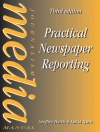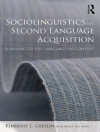This book builds on the idea that pragmatics and philosophy are strictly interconnected and that advances in one area will generate consequential advantages in the other area. The first part of the book, entitled ‘Theoretical Approaches to Philosophy of Language’, contains contributions by philosophers of language on connectives, intensional contexts, demonstratives, subsententials, and implicit indirect reports. The second part, ‘Pragmatics in Discourse’, presents contributions that are more empirically based or of a more applicative nature and that deal with the pragmatics of discourse, argumentation, pragmatics and law, and context.
The book presents perspectives which, generally, make most of the Gricean idea of the centrality of a speaker’s intention in attribution of meaning to utterances, whether one is interested in the level of sentence-like units or larger chunks of discourse.
Содержание
Part I Theoretical approaches to philosophy of language.- Nathan Salmon, Cognition and recognition.- Jay Atlas, Aboutness and quantifying into intensional contexts.- Michael Devitt, Subsententials: Pragmatics or semantics?.- Graham Forbes, An investigation of a Gricean account of free-choice ‘or’.- Denis Delfitto, Negation as a window on the non-sequential nature of language interpretation and processing.- Alessandro Capone, Embedding explicatures in implicit indirect reports (simple sentences and substitution failure cases).- Alberto Voltolini, How demonstratives’ complex pictorial reference grounds contextualism.- Part II Pragmatics in discourse.- Alessandra Giorgi, Discourse, sentence grammar and the left periphery of the clause.- Keith Allan, Gettings a grip of context as a determinant of meaning.- Gunter, Senft, Theory meets Practice – H. Paul Grice’s Maxims of Quality and Manner and the Trobriand Islanders’ language use.- Marco Carapezza – Valentina Cuccio, Abductive inferences in pragmatic processes.- Richard Warner, Coordinating Meaning: Common Knowledge and Coordination in Speaker Meaning.- Brian, Butler, Dworkin’s “Semantic Sting” and Behavioral Pragmatics.- Neale Norrick, Stories and the transmission of knowledge: Narrative, evidence, credibility and epistemic vigilance.












